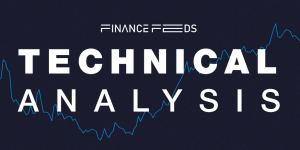Understanding the Dow Jones Index: A Guide to Its Importance and Movement
The Dow Jones Industrial Average (DJIA), commonly known as the Dow Jones Index, is a key indicator of the U.S. stock market’s health. Comprising 30 prominent companies, it reflects overall market trends, guiding investors and economists in their financial decisions.

The Dow Jones Industrial Average, or Dow Jones Index, stands as one of the most watched stock market indices in the world. Established in 1896 by Charles Dow and Edward Jones, it was designed to serve as a clear indicator of the health and direction of the United States stock market. Unlike other indices that might track a larger number of stocks or various sectors, the Dow Jones focuses on 30 significant publicly-owned companies based in the United States, representing a wide array of industries except for transportation and utilities, which are covered by separate indices.
Understanding the Dow Jones Index is crucial for anyone involved in the stock market, whether you’re a seasoned investor, a financial analyst, or just starting to explore the world of finance. The Dow’s selection of companies is not fixed; it changes over time to reflect the evolving landscape of the U.S. economy. This dynamic nature ensures the index remains relevant, offering a snapshot of the market’s overall health and trends. The companies included in the Dow are considered leaders in their industries, and their performance is often viewed as a bellwether for economic health and investor sentiment.
The movement of the Dow Jones Index is watched daily by millions around the world. It fluctuates based on the stock prices of its component companies, with each company’s price movement impacting the index in proportion to its price. This price-weighted index is different from other major indices, such as the S&P 500, which is market capitalization-weighted. This means that companies with higher stock prices have a more significant impact on the Dow’s movement, regardless of their actual market size or economic impact.
The importance of the Dow Jones Index goes beyond just tracking the performance of 30 large companies. It is often used as a barometer for the overall U.S. economy, despite criticisms that it does not represent the broader market as comprehensively as other indices. The Dow’s historical data provides valuable insights into market trends, investor confidence, and economic cycles. Analysts and investors closely monitor changes in the index, as significant movements can indicate broader market shifts, influencing investment strategies and economic forecasts.
In addition to its role in financial markets, the Dow Jones Index is a cultural icon, frequently cited in news reports, financial analyses, and even casual conversations about the economy. Its movements are reported daily in financial news outlets, and significant milestones in the Dow’s performance often make headlines beyond the financial pages.
Despite its limitations and the existence of more comprehensive indices, the Dow Jones Industrial Average remains a cornerstone of financial market analysis. Its continued relevance is a testament to its historical significance, the enduring importance of its component companies, and its ability to adapt to the changing U.S. economy. As the stock market evolves, the Dow Jones Index will undoubtedly continue to play a key role in financial markets, serving as a vital tool for investors, analysts, and economists alike.









